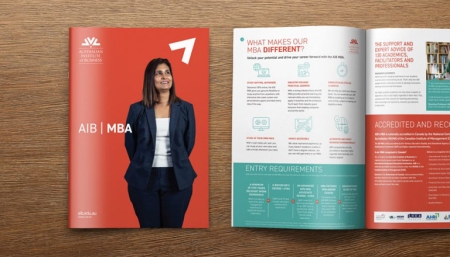6 Habits That Lead To Poor Decision Making

Anyone who makes the transition from a manager to a leader quickly discovers that the ability to make effective decisions efficiently is essential to their success.
Decision-making is a skill and making decisions quickly and well under pressure means that those skills need to be sharp. The good news is that you can improve your decision-making skills, but if you don’t watch out for some bad habits you can still make mistakes.
Six habits that lead to poor decision-making
Even very experienced leaders and decision-makers need to avoid bad habits that can interfere with their ability to make effective decisions. In fact, the people who are frequently making high-stakes decisions are the ones who most need to avoid bad habits creeping in.
Particularly when you are making decisions often and quickly, bad habits can creep in easily and take hold, with potentially disastrous effects.This article takes a look at the most common habits that lead to poor decision making and explains why it is important to avoid them at all costs.
1. Not doing your research
A critical error made by many when it comes to poor decision making is making a misinformed decision.
The solution: You must ensure that all possible research has been done, and that the situation has been considered from all angles. This is very important to the success of the decision and will impact future outcomes.
2. Rushing the process
When under pressure and tight deadlines, it is not uncommon for a poor decision to be made. As a result of the pressure, poor decision making occurs when the leader is irrational, and makes a decision to eliminate the issue.
The solution: No matter how much stress you are under, you must be able to sit back and look at the situation with a rational perspective. It can help to have a formal process for making decisions. This may include defining the problem, collecting the data, consultation, the decision itself and communication. If you have a formal process, ensure that all steps are completed in order.
3. Not consulting subject matter experts
When you don’t know the answer to the problem, if you don’t put your pride aside and consult someone who does, you can run into problems. Often, egos get in the way in the workplace, and everyone wants to be seen as the problem solver. Other times, issues can occur because the decision-makers are unclear about who has relevant expertise or experience.
The solution: Recognise that everyone has common organisational success in mind and consult others before making a misinformed and irrational decision. Ahead of making a decision, identify all the relevant stakeholders and ensure they are involved at the right steps of the process.
4. Not forward thinking or planning
As a leader, the ability to foresee unexpected events and know how to react to them is very important. Poor decision making will occur if the future implications of a decision have not been considered, and possible contingencies are explored.
The solution: This therefore means that you should have a constant forward-thinking mindset, and always be planning for the future. Make sure you consult with the relevant subject matter experts (they will be able to foresee some things you can’t) and consider working with a mentor to develop your own mindset.
5. Indecisiveness
If you are an indecisive person who struggles to make – or commit to – a decision in the first place, poor decision making is likely to take place. Whilst indecisiveness can be viewed as positive as more time is spent analysing facts, overall, it will not lead to effective decisions being made.
The solution: Indecisive people should work on making confident judgments and developing their decision-making skills. Decisiveness is a vital attribute for any leader, and if it’s not already one of your strengths, find a way to develop it. Whether you start working with a coach or mentor or undertake studies like an MBA, any investment in these skills will pay dividends.
6. Poor communication
If findings are not communicated properly, a good decision cannot be made. Similarly, if the leader is unable to convey their decision, employees will struggle to enforce it appropriately.
The solution: Clear and honest communication is necessary at all times in the workplace. As in many roles, good communication skills are imperative for success. In this case, there must be efficient communication skills in both the team, as well as the decision maker themselves. Once a decision has been made, make sure anyone who is impacted understands the decision, why it was made and, crucially, how it impacts them.
Maintaining decision-making skills takes practice
Bad habits rarely begin by choice, but as long as you are aware of what they look like and keep practising good decision-making habits, they are less likely to set in.
If you found this article useful, you may also be interested in:
This article was written by Laura Hutton on behalf of the Australian Institute of Business. All opinions are that of the writer and do not necessarily reflect the opinion of AIB.



